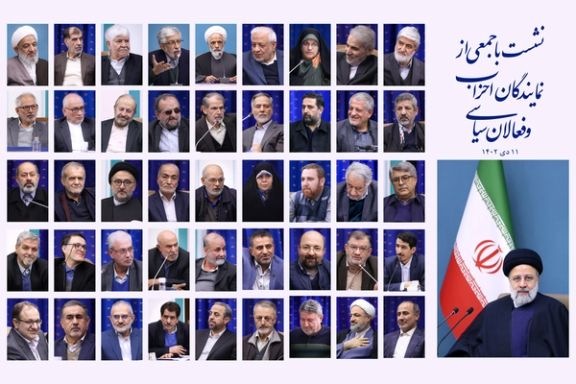Iran Allies Condemn Twin Blasts At Soleimani Memorial
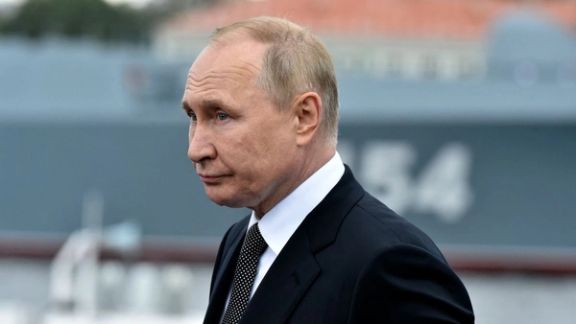
Iran’s allies were quick to condemn twin blasts at an event commemorating the death of Quds Force commander Qassem Soleimani.

Iran’s allies were quick to condemn twin blasts at an event commemorating the death of Quds Force commander Qassem Soleimani.
Russian President Vladimir Putin labeled the attack "shocking in its cruelty and cynicism."
President Recep Tayyip Erdoğan of Turkey denounced the explosions as an "atrocious terror attack," expressing deep sadness and solidarity with the Iranian people.
The explosions occurred during commemorations for the fourth anniversary of Qasem Soleimani's death, resulting in at least 103 fatalities and over 170 injuries—marking the deadliest attack in Iran since the 1979 Islamic revolution.
Iranian President Ebrahim Raisi vowed to “identify and punish the perpetrators through Iranian security and law enforcement forces.”
During Soleimani's 2020 funeral, following his assassination by a US drone strike, a stampede in a procession of thousands led to at least 56 fatalities and over 200 injuries.
The slain commander headed Iran’s proxy militias around the region.
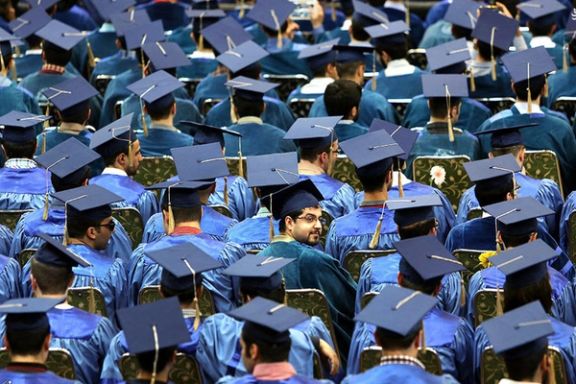
To curb increasing Iranian emigration, the Islamic Republic now withholds university degrees until substantial payments are made.
Iranian education authorities have hiked the costs of releasing academic degrees more than 30 times under the pretext of preventing brain drain. Iran is demanding exorbitant fees from the graduates of the so-called governmental universities who already went through the corruption-struck national admission exam to get the state-promised free education.
According to Hamoun Sabti, the secretary of the Transparency Watchdog Commission – an NGO affiliated with Iran’s Conservatives, “the average fee for every semester of study for some bachelor's degrees has surged from about $20 to $600.” It means that for a four to five-year program, an Iranian must pay a minimum of $5,000 for official documentation of a degree that offers no employment or income guarantees. The average monthly income for Iranians ranges from $100 to $300.
The rates had not changed significantly for over a decade until last year, when the Ministry of Science officially raised the fees six to 10 times. However, the graduates are asked to pay even more when they apply to receive their degrees. Ranges differ according to subject and level with master’s and PhD graduates paying the most and healthcare majors facing costs in excess of $2,000 per semester. For a PhD in a healthcare major, a five-year program in Iran, the cost for the degree from a state university can go over $20,000.
The decision was made about a year after Supreme Leader Ali Khamenei criticized the growing trend of brain drain and emigration of elites, tacitly giving the green light for stringent financial policies aimed at reversing the trend and holding the country's brightest minds hostage.
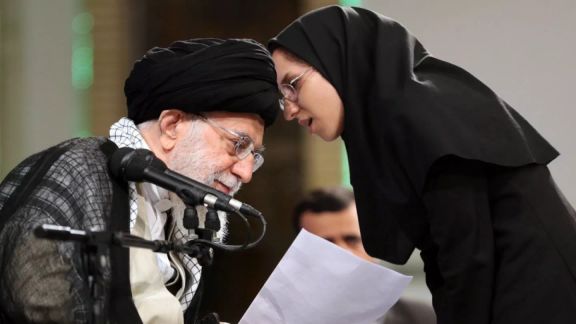
According to official statistics, more than 3,000 nurses and 10,000 physicians migrate annually, with an average of 16,000 students leaving Iran each year to pursue further education. The Tehran-based Nilgam Center, an agency providing services to Iranians seeking to emigrate, claims that between 2010 and 2020 roughly 500,000 migrants left the country permanently. In April 2020, the Stanford Iran 2040 Project, reported in April 2020 that the population of Iran-born emigrants increased from about half a million before the 1979 revolution to 3.1 million in 2019. The top destinations were the United States, Canada, Germany and the United Kingdom.
Last year, more than 34,000 students and graduates signed a petition, calling on the Transparency Watchdog Commission to intervene. The head of the NGO, former lawmaker Ahmad Tavakkoli, wrote to President Ebrahim Raisi, asking him to annul the decision, but to no avail.
Sabti emphasized that such a decision should have been announced before implementation to prevent dissatisfaction in society. "If it is necessary to increase the fees by 30 to 50 times, the previous executives should be accountable for why it has not happened until now.If the increase is unreasonable, why causing dissatisfaction in society?” he noted.
Critics argue that the new rates should not apply to those who graduated before the fee increase, but authorities insist that the law applies to everyone. Last month, Iran’s Administrative Court of Justice voted in favor of the Science Ministry – the main authority that issues degrees – upholding that “the time of payment, not the time of study" is the base to calculate the fees. The ruling was issued following separate complaints filed by 26 students and graduates against the Ministry. Several university newsletters called the decision “taking university degrees hostage.”
Technically, the Islamic Republic justifies the fee – officially called the Cost of Canceling Free Education Service Commitment -- as compensation for the years a graduate must work in service to the country, twice the education timespan. However, in the absence of official employment opportunities, degree-holders must pay even higher than private university tuition to obtain their degrees. According to a report published earlier in the month by Nature, Iran’s universities are among the least trusted in the world.
Sabti said, “Some argue that the new rates will reduce brain drain and prevent the emigration of elites from the country. This notion is akin to believing that increasing gasoline prices would solve major cities' traffic problems. Unfortunately, we have seen that with the rising cost of gasoline, the traffic problem has not been resolved.”
While the Islamic Republic authorities justify the policy as a measure against brain drain, it is also perceived as part of the cash-strapped government's efforts to pocket more from people's wallets. According to reformist commentator Abbas Abdi, the government compensates for its inefficiency in boosting revenues from oil sales by raising taxes and tariffs imposed on the general population.
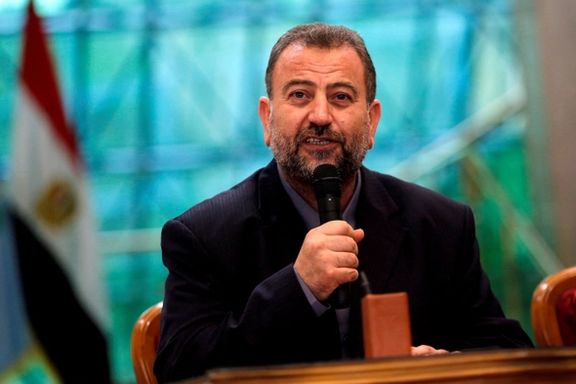
The Islamic Revolutionary Guard Corps (IRGC) issued a condemnation regarding the killing of Saleh al-Arouri, a senior Hamas official.
Al-Arouri, serving as Hamas's deputy leader abroad, was targeted in an alleged Israeli strike in Dahiyeh, a Hezbollah stronghold in Beirut on Tuesday, part of the Jewish state's mission to destroy the UK designated terror group after the October 7 invasion.
The IRGC's statement claimed that attempts to “rectify the defeat on [October 7] through acts of assassination and crime are futile. The Zionist regime, currently facing challenges, is deemed incapable of distorting the resistance's strategic calculations through such actions,” disregarding the fact that since the attacks, Gaza has been devastated by Israel's relentless retaliation and dozens of its top commanders assassinated.
Naser Kanaani, Iran's Foreign Ministry spokesman, also condemned Israel's "despicable" actions, labeling them as killings that will serve to further motivate the region to resist Israel. Despite the condemnation, Iranian government websites provided minimal coverage of the event on Wednesday as the regime marked the fourth anniversary of the death of former IRGC Quds Force Commander Qasem Soleimani, killed in a US drone strike on January 3, 2020.
Al-Arouri, a founding member of Hamas's military wing, had overseen the group's operations in the West Bank and spent nearly 18 years in Israeli prisons since the early 1990s. Residing in Lebanon since 2018, he was known for his close ties to both Hezbollah and Iran. His West Bank home was also flattened in the wake of the October 7 attacks.
Since the October 7 invasion led by Iran-backed Hamas into Israel, resulting in the loss of 1,200 lives, predominantly civilians, and the abduction of over 240 more, Iran's proxies have been activated across the region.
Attacks on both Israel and US facilities across the region have intensified, Iranian proxies in Yemen, Lebanon, Iraq, and Syria claiming to stand in support of Hamas, culminating in the worst crisis witnessed in recent years.
Iran's Yemeni proxy, the Houthis, have implemented a blockade of the Red Sea and surrounding area, leading to a more than 20-nation coalition being formed by the US to counter the threat to global trade routes.
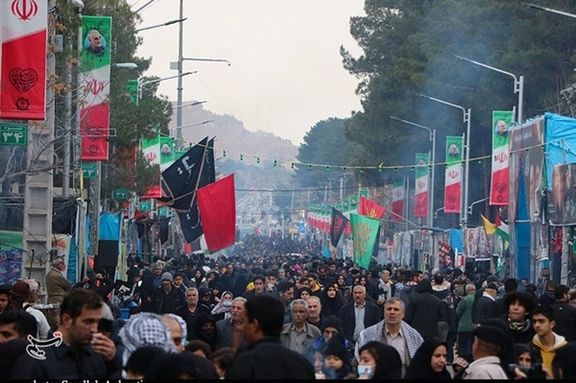
Ninety-five people were killed and 211 injured after two explosions occurred near the grave of IRGC commander Qasem Soleimani on his fourth death anniversary.
Iranian state television reported a first and then a second explosion at the cemetery in the southern city of Kerman during the ceremony held to mark the 2020 killing of the top IRGC commander in a US drone attack at Baghdad airport.
Iranian officials have made conflicting statements since the incident. The mayor of Kerman and some government-controlled media claimed that the explosions were due to gas blasts, while others said it was a suicide attack, and yet other officials said bombs were placed on the road to the cemetery.
Local media reported that the condition of some of those injured was critical, while one emergency medical staff member, who was rushing to the scene after the first explosion, was killed by the second blast.
The number of casualties, first reported as 20 dead climbed quickly, as local media put the latest number at 103 people killed and more than 170 injured in the incident. However, it remains unclear if all the casualties were due to the explosions or a stampede that reportedly followed the incidents.
The semi-official Nournews said soon after the incident that "several gas canisters exploded on the road leading to the cemetery and relevant authorities are monitoring the situation".
However, later reports spoke of four explosions and a hardliner member of parliament blamed Israel for what he said was a terror attack conducted with suicide belts. Semi-official media reported that two bombs were placed in separate bags.
In more than two decades at the head of the IRGC’s Quds forces, Soleimani managed to create a loose but effective coalition of forces spanning from Yemen to Lebanon, all with domestic interest but united in their enmity towards Israel and the US.
Follow our Live Blog for latest related developments
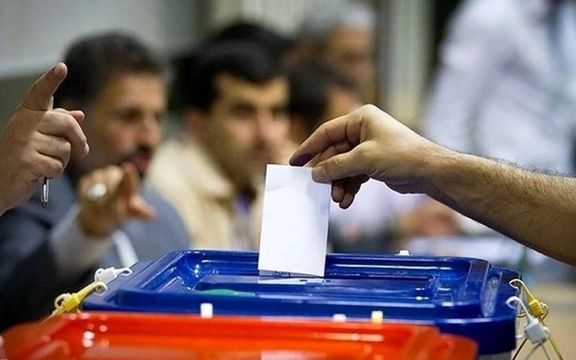
Iranian Supreme Leader Ali Khamenei urged citizens to “fulfill their duty” to participate in the upcoming elections amid a purge of regime loyalists.
Addressing concerns about efforts to discourage elections, Khamenei addressed supporters on Wednesday, saying, "Some individuals do not wish for the elections to take place, and they strive to make the people despaired, erode their trust, and pretend that elections are futile and inconsequential."
He called for actions against those attempting to “weaken public engagement in the country's administration”, which comes amid continued mass dissent in the wake of the 2022 uprising.
He claimed a "hostile movement" is seeking to undermine the electoral process, though it is estimated as little as 15 percent of voters will participate given the current with the status quo.
The ongoing purification campaign led by hardliners within the Paydari Party initiated earlier in the year to consolidate political power, resulted in dismissals and bans for numerous university professors, teachers, and artists.
The dominance of hardliners began in 2020 when the Guardian Council disqualified hundreds of individuals from running for parliament. In the 2021 presidential elections, serious contenders were barred, paving the way for Ebrahim Raisi's presidency.
As the March 1 elections approach, the absence of reformist and moderate groups due to disqualifications raises concerns about low voter turnout. Reports suggest that ultraconservatives may even welcome a low turnout.
While Khamenei expresses a desire for high voter turnout, the actions of his followers, particularly the hardliners, indicate a lack of intention to provide a fair chance to their rivals, the Reformists.
Reformist groups, largely excluded in the previous two elections, face challenges in mobilizing voters as many of their candidates have already been disqualified.
The Interior Ministry's discretionary disqualifications, coupled with the Guardian Council's vetting powers, further limit the scope for a diverse and competitive electoral landscape.
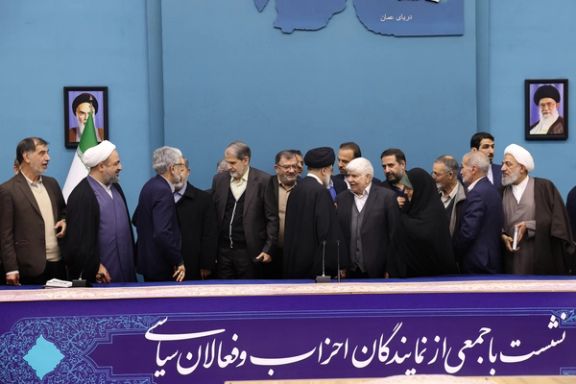
Iranian President Ebrahim Raisi on Monday called a meeting with some 50 politicians loyal to the regime, amid sharp controversy over upcoming parliamentary elections.
The meeting, which was the first of its kind since Raisi took office as Iran's President in 2021, was shunned by some Reformists who saw his maneuver as a move to distract the nation from the realities on the ground. However, some of them appreciated the opportunity to meet face to face with Raisi and convey their concerns ahead of the March 1 parliamentary elections.
Hardliners using the regime’s undemocratic candidate vetting scheme has already disqualified most Reformists and moderates from running in the election. This has diminished the already slim chance of having a large turnout by voters, who are uncertain that elections could lead to meaningful policy changes under Supreme Leader Ali Khamenei.
Iranian social media users and journalists also reacted negatively to Raisi’s apparent willingness to engage with insider political groups. Mostafa Faghihi, the editor of Entekhab News wrote in a tweeted that Raisi has clearly aligned himself with the hardliner Paydari group. "In your opinion, why should Raisi sit between the chairman of the central council of Paydari Party and the Interior Minister [who is also close to Paydari]? Interestingly, Raisi has said recently that his government has no candidate in the parliamentary elections. But it seems that he has done away with all reservations, and we should clearly see the indications of Paydari's influence in the government."
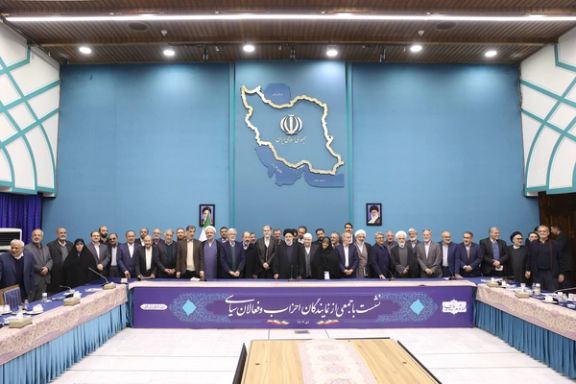
Another user who posted several photos of the meeting, wrote: "Did you ever see such a scene in the Rouhani administration?" And Iranian journalist Ehsan Bodaghi wrote: "This is not even a show of a political agreement. The minimum requirement for an agreement is holding free and fair elections. In that case, you do not need these pictures to prove that all political groups will take part in the elections."
The 150-minute-long meeting was attended by politicians from the left and right wings, but most of the 25 political figures who spoke or asked questions were from the reform camp. Mohammad Ali Abtahi, the former chief of staff of former President Mohammad Khatami wrote on Instagram: "I told Raisi he should acknowledge that the people are sulking with the government. I also told him that even all of us try to encourage the people to vote, our advice is not going to be effective and will not change social realities."
Abtahi quoted Raisi as having said at the meeting that in his opinion all candidates who have registered should be allowed to run.
Opponents of the regime and true dissidents are already barred from political participation. Their place is usually in the courts, prisons or exile.
Meanwhile, Abtahi wrote that during the meeting Sadeq Mahsouli the leader of the Paydari Party said that 2009 Presidential election was the best election that was ever held in Iran. That was the disputed election that brought populist Mahmoud Ahmadinejad to power for a second term and led to months of protests all over Iran. Abtahi added that former government spokesman, reformist Ali Rabiei harshly responded to Mahsouli who had called the protests "sedition."
Abtahi said that during his speech, he suggested to Raisi to change his restrictive policy about social media and allow the parliament to have a say about key matters, such as foreign policy.
Meanwhile, according to Etemad online, reformist activist Javad Emam said in the meeting that organizing the meeting was meant to distract attention from the political realities in the Iranian society. "Without free, fair and competitive elections, such meetings are nothing more than shows, " Emam said. He added that the meeting will not have any impact on the elections. It was only meant to justify the government's policy of barring candidates. Such a meeting should have taken place before changing the provisions of the election law and barring many candidates, he said.
Emam further accused Raisi and his government of disappointing the people and causing young Iranians to lose faith in the electoral process. In conclusion, Emam called on the government to abolish the vetting process and respect the people's right to choose their representatives.
